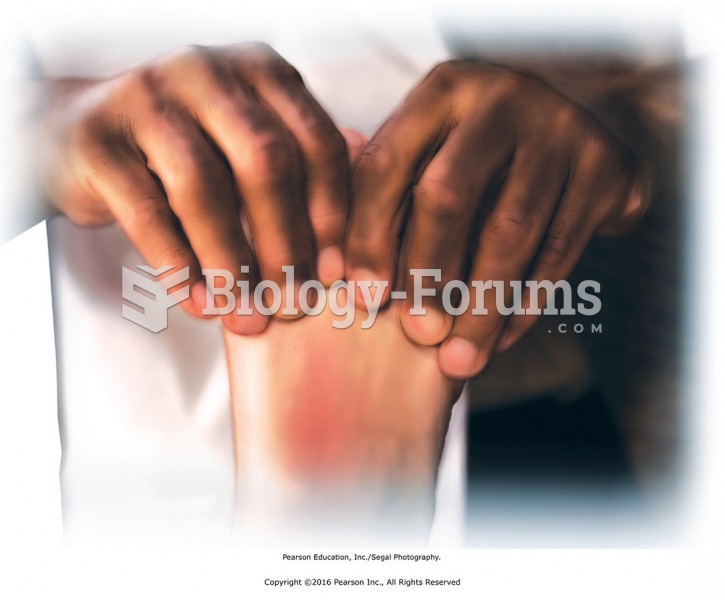|
|
|
Most fungi that pathogenically affect humans live in soil. If a person is not healthy, has an open wound, or is immunocompromised, a fungal infection can be very aggressive.
Autoimmune diseases occur when the immune system destroys its own healthy tissues. When this occurs, white blood cells cannot distinguish between pathogens and normal cells.
The human body's pharmacokinetics are quite varied. Our hair holds onto drugs longer than our urine, blood, or saliva. For example, alcohol can be detected in the hair for up to 90 days after it was consumed. The same is true for marijuana, cocaine, ecstasy, heroin, methamphetamine, and nicotine.
There are more bacteria in your mouth than there are people in the world.
The term bacteria was devised in the 19th century by German biologist Ferdinand Cohn. He based it on the Greek word "bakterion" meaning a small rod or staff. Cohn is considered to be the father of modern bacteriology.
 The urinary system: kidneys, ureters, bladder, and urethra with expanded view of a nephron and the u
The urinary system: kidneys, ureters, bladder, and urethra with expanded view of a nephron and the u
 Retrograde pyelography (RP). Note the contrasting of the renal calyces, ureters, and bladder followi
Retrograde pyelography (RP). Note the contrasting of the renal calyces, ureters, and bladder followi
 Nephrolithiasis. Stones, or calculi, may form in several areas within the urinary tract. When they f
Nephrolithiasis. Stones, or calculi, may form in several areas within the urinary tract. When they f




